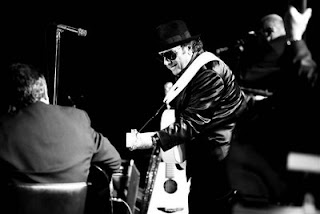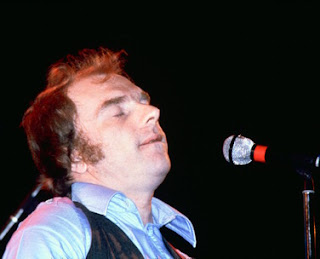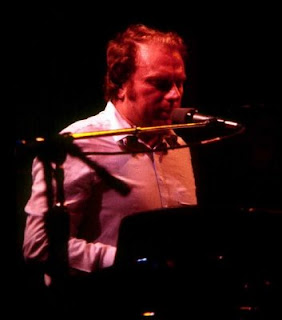Astral Weeks Live at the Hollywood Bowl
CD & Double Vinyl available March 10!!
Sweet Thing - Live at the Hollywood Bowl
Unofficial Blog of Van The Man
















































































































CD & Double Vinyl available March 10!!
Sweet Thing - Live at the Hollywood Bowl
Posted By
John Gilligan
at
1:05 AM
6
comments
![]()
 Tickets for Van's February 27th & 28th shows at WaMu Theater at MSG are now on sale.
Tickets for Van's February 27th & 28th shows at WaMu Theater at MSG are now on sale.
American Express Cardmembers can purchase tickets January 18 at 10AM through January 24 at 10PM, before they go on sale to the general public on January 25.
Posted By
John Gilligan
at
3:11 AM
0
comments
![]()
 L.A. Times:
L.A. Times:
Van Morrison takes listeners on his spiritual journey
With a live album combining 'Astral Weeks' and more recent material, he steps aside to let his soul express itself.
One of the conundrums facing anyone who makes music for a living is that live music frequently isn't. Truly alive, that is.
The brutal reality of mounting a major concert tour is that it requires intensive rehearsals and meticulous planning of sound, lighting and staging effects, often leaving music itself as just another element of a tightly organized script that's repeated night in and night out with little room for deviation.
Some artists, of course, make an art out of veering from the script mentality. Bob Dylan, Neil Young and Bruce Springsteen hold court atop the list of rockers who strive for liberation with every performance. Jazz as a genre also counts spontaneity among its core values, just as gospel at its most inspired seeks something higher through performance.
You could hear Van Morrison drawing on all three traditions when he performed his 1968 album, "Astral Weeks," live for the first time last November at the Hollywood Bowl, transcendent concerts preserved faithfully in "Astral Weeks Live," which will be released Feb. 10 on Morrison's new Listen to the Lion record label.
Because of the largely ecstatic response to those performances, Morrison has decided to do two more "Astral Weeks" shows Feb. 27 and 28 at Madison Square Garden in New York.
The two Bowl shows came after only one rehearsal of the "Astral Weeks" material, which blended jazz, folk, rock, soul and Irish traditional music elements into one of the most revered albums in pop music history.
"It was pure magic for me," Morrison told The Times this week in an interview conducted by e-mail. "I really had no expectations prior to the show. We had one rehearsal and some magic wand must have been waved, because I felt it -- I felt the current of magic, the power. It was more than I could have hoped for."
Rather than re-creating the album precisely, Morrison used it as a springboard to music in and of-the-moment, stretching phrases with his signature melismatic vocals, altering lyrics, shifting the song order and allowing the players around him to feed off one another.
From the first notes of the defining run-up, run-down bass line of the song "Astral Weeks," the live version becomes something new entirely, making it all the more clear why Morrison said he'd always envisioned presenting this set of poetically evocative ruminations live with a full orchestra.
He turns the word "Caledonia" into a mantra as that first song unfolds, spontaneously interpolating new lyrics including the phrase "I believe I've transcended," which he repeats like a gospel preacher on fire. The audience cheers, as if offering a collective "Amen."
In revamping the song sequence from the album, what had been separate jazz waltz-tempo numbers, "Sweet Thing" and "The Way Young Lovers Do," now merge and further build on each other. And upon completing the original batch of songs with "Madame George," he encored with "Listen to the Lion," from 1972's "St. Dominic's Preview," and "Common One," the title track of his 1980 album, both included on the live album.
"There was an alchemy that took place," Morrison noted. "I could feel it, and other people tell me they could literally see it occurring. I thought it was just going on within me. But apparently I was not alone. By the looks of it, far from it."
As for appending "Listen to the Lion" to the "Astral Weeks" material, Morrison said, "I wanted to end the 'Astral Weeks' set with 'Madame George.' I wanted to tell people at the end these songs are a 'train of thought' and leave it at that. I think 'Lion' is a song that is all me, as well, so I ended with that. . . . It's a song I guess about me -- probably the only one about me.
"The second bit I do on the harp is 'the lion speaks.' If you listen to that, I am playing as if the lion is trying to speak with no voice. He only has his soul and I think -- I hope -- that came across. It's about getting out of one's way so the soul can be heard, I suppose. The lion speaks. . . . I decided to end the show on a spiritual note."
He said that whether the audience senses that spirituality or not is almost incidental.
"I do not consciously aim to take the listener anywhere," Morrison said. "If anything, I aim to take myself there in my music. If the listener catches the wavelength of what I am saying or singing, or gets whatever point whatever line means to them, then I guess as a writer I may have done a day's work. . . .
"During the 'Astral Weeks' live in Hollywood performances, that emotionality, transcendence and tangible alchemy was 100% organic and grew itself spontaneously . . . ," he continued. "I think God must have wanted it to happen -- my higher-power instinct -- I am not sure, but it was not a conscious effort. It was a matter of getting back to doing 'me' -- what I like, what comes naturally from me when I have an interest in what I am creating."
On Bringing 'Astral Weeks' Shows to NYC:
Van Morrison said that his Hollywood Bowl shows in November would be the only time he would perform his classic 1968 album “Astral Weeks” live.
But that was before the two performances, which he says in an exclusive Times interview, "was more than I could have hoped for."
“The whole thing just worked,” he told The Times by e-mail. “One rehearsal -- that was not even that good -- and we hit the stage and the Magi or whoever just waved the wand and we flew.
“Even now listening to the live recording of the shows,” he wrote, “I hear something different and profound every time I replay something. It took a while for me to understand that we really did it, and made it into something even more different than it already was.... I do believe I transcended something doing this. Not sure what it is, but I still feel it.”
Consequently, he’s adding two more “Astral Weeks” shows in New York next month, Feb. 27 and 28 at Madison Square Garden. For the first half of those shows, Morrison said he’ll be delving further into the music he was writing leading up to the release of “Astral Weeks,” some of which appeared on the Bang Records album “Blowin’ My Mind.” That collection included his first solo hit, “Brown-Eyed Girl,” but was released without his input or approval. So expect major revamping of those songs.
“I am reworking set one to play 'TB Sheets,' 'Mystic Eyes' and 'Who Drove the Red Sports Car' and a couple of Them songs I have not done in decades, so it is once again fresh and new and interesting for me,” Morrison said. “So we will venture into the slipstream one more time.”
-Randy Lewis
Posted By
John Gilligan
at
3:23 AM
0
comments
![]()
 Press Release:
Press Release:
Multi-award winning soul singer and musical legend Van Morrison is set to release "Astral Weeks: Live at the Hollywood Bowl," an in-concert reworking of his historic 1968 gold-certified solo album. Recorded live over two nights at the Hollywood Bowl this past Nov. 7 and 8, the album marks the premiere release on Mr. Morrison’s new EMI-distributed label, Listen to the Lion Records. "Astral Weeks: Live at the Hollywood Bowl" arrives in stores Feb. 10, 2009. A double-vinyl edition with three bonus tracks (including a live version of “Gloria”) arrives in stores the same day.
The concerts marked the first time Mr. Morrison ever performed "Astral Weeks" in one complete concert set. Joining him was an orchestral string section and a band composed of world-class musicians, some of whom played with Van on the original "Astral Weeks" sessions 40 years ago. Tracks on the CD include: "Astral Weeks/I Believe I’ve Transcended," "Beside You," "Slim Slow Slider/ I Start Breaking Down," "Sweet Thing," "The Way Young Lovers Do," "Cyprus Avenue / You Came Walking Down," "Ballerina," "Madame George" and two bonus tracks, "Listen to the Lion / The Lion Speaks" and "Common One."
"The Hollywood Bowl concerts gave me a welcome opportunity to perform these songs the way I originally intended them to be," says Mr. Morrison, who amazingly held only one rehearsal prior to the concerts. "There are certain dynamics you can get in live recordings that you just cannot get in a studio recording. I love listening to live recordings. You get the whole thing right there, unabridged, raw and in the moment. There was a distinct alchemy happening on that stage in Hollywood. I felt it."
To rework "Astral Weeks," Mr. Morrison added his signature stretching of songs in a manner unlike any before by creating new sections of songs live on stage. As producer of the record, Morrison insisted there be no post-production engineering. It is straight up raw from the Hollywood Bowl stage - pure resonant sound.
"These songs are timeless and as fresh today as the day they were written, actually even more so," Mr. Morrison added. "I was happy to perform them at the Hollywood Bowl and delighted to release a live album which really captures the essence of the original for today’s audiences with every taste in music. It's got it all, jazz, blues, folk, classic. You name it."
Fans and critics present at the Hollywood Bowl those two nights grasped the momentous nature of the concerts. Rolling Stone Magazine noted that Mr. Morrison "took charge of the music with the authority that comes with four decades of performing. It seemed that once he breathed in the perfume of these eight songs, he didn’t want them to end — and looking at the enraptured crowd, he wasn’t the only one." Added the Los Angeles Times, "Transcendence is what Morrison has been after with his music from the beginning… the wondrous youthful timbre of his voice… has evolved over the years into a richer, fuller instrument, with every bit of its remarkable elasticity very much intact."
Unbeknownst to Mr. Morrison at the time he planned the Hollywood Bowl shows, the concerts coincided exactly with the 40th anniversary of the release of "Astral Weeks." He took it as a sign this project was destined to be. Universally regarded as one of the most important albums in pop music history, "Astral Weeks" broke new ground with its experimental free-flowing arrangements and deeply reflective songs. Mr. Morrison’s motivation to rework the music was to get back to his original signature sound: a blend of jazz, blues, classical and folk unique to Van Morrison.
Both Bowl shows were filmed in high-definition, and will later be available as a commercial DVD concert film. Due to overwhelming demand, Mr. Morrison will perform "Astral Weeks" again, in show at the Theater at New York’s Madison Square Garden, on Friday and Saturday, Feb. 27 & 28. Accompanied by two different bands, Mr. Morrison will play two sets per show: one of “Astral Weeks” cover to cover, the other of rarely played Van Morrison classics. He may even pull out rare gems “TB Sheets,” "Mystic Eyes," “Who Drove the Red Sports Car” and “Baby Please Don’t Go.”
A Rock and Roll Hall of Fame inductee, Mr. Morrison is responsible for some of the greatest recordings of the last fifty years. A Belfast native of proud Scottish heritage, he grew up listening to American music with his parents, his favorites artists being greats like Ledbelly, Mahalia Jackson, Lightnin’ Hopkins and other legends of blues and soul. With more than 200 of his compositions featured in major motion pictures over the years, Mr. Morrison was inducted into the Songwriters Hall of Fame by the late Ray Charles in June 2003.
As Mr. Morrison said, “I’m not just a singer. I am a soul singer.” His “Astral Weeks Live at the Hollywood Bowl” proves exactly that, over and over again.
[Image via L.A. Weekly]
Posted By
John Gilligan
at
12:57 PM
0
comments
![]()
 Mick Glossop has been engineering Van's albums for many years. Here is part of an interview he did in October 2006 with Resoulution magazine in which he speaks about mixing Van's albums. Also included is an interview from 1999.
Mick Glossop has been engineering Van's albums for many years. Here is part of an interview he did in October 2006 with Resoulution magazine in which he speaks about mixing Van's albums. Also included is an interview from 1999. Glossop also tries to keep the tape rolling in order to avoid missing out on any moments of artistic inspiration.
Glossop also tries to keep the tape rolling in order to avoid missing out on any moments of artistic inspiration. 'Van does do a lot of stream-of-consciousness-type songs, where instead of lyrics he'll have a page of words or phrases that he dips into and a lot of other stuff is off the top of his head. There's no structure and the band members are just flying by the seat of their pants, and there are often misgivings from the musicians when they are put on the spot. He doesn't tell them what key the song is in, he doesn't tell them anything about the chord structure. They have to pick it up most of the time, and that's pretty tough. Obviously there will be mistakes and various musicians will feel that they haven't played as well as they could because they were feeling their way, and sometimes they're right and patch-ups will be done. However, quite often Van will insist that they don't redo their parts unless there's a really glaring error, because he knows that that first tentative performance has a unique quality purely because they had to play instinctively.
'Van does do a lot of stream-of-consciousness-type songs, where instead of lyrics he'll have a page of words or phrases that he dips into and a lot of other stuff is off the top of his head. There's no structure and the band members are just flying by the seat of their pants, and there are often misgivings from the musicians when they are put on the spot. He doesn't tell them what key the song is in, he doesn't tell them anything about the chord structure. They have to pick it up most of the time, and that's pretty tough. Obviously there will be mistakes and various musicians will feel that they haven't played as well as they could because they were feeling their way, and sometimes they're right and patch-ups will be done. However, quite often Van will insist that they don't redo their parts unless there's a really glaring error, because he knows that that first tentative performance has a unique quality purely because they had to play instinctively.
Posted By
John Gilligan
at
7:59 PM
4
comments
![]()